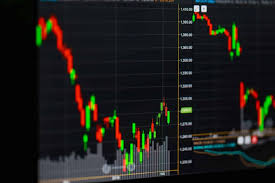
When considering investment opportunities, many traders find themselves facing a significant decision: should they delve into trading forex vs stocks Trading PH or focus on stocks? Each option comes with its own set of advantages and challenges, making it crucial to understand the key differences. In this article, we will explore the critical factors that can help you make an informed decision regarding Forex trading versus stock trading.
Understanding Forex Trading
Forex, short for foreign exchange, is the world’s largest financial market. It operates on a decentralized global network where currencies are traded. The primary goal of Forex trading is to exchange one currency for another, intending to profit from fluctuations in currency values.
The Mechanics of Forex Trading
The Forex market operates 24 hours a day, five days a week. This continuous operation allows traders from around the world to place trades at any hour, catering to different time zones and trading strategies. Transactions in Forex are conducted in pairs (for example, EUR/USD), and the profit or loss is determined by the changes in the exchange rate.
Advantages of Forex Trading
- High Liquidity: The Forex market is known for its high liquidity, allowing traders to enter and exit positions easily. With a daily trading volume that exceeds $6 trillion, it is easier to find buyers and sellers.
- Leverage: Forex brokers often offer significant leverage, sometimes up to 500:1. This means that traders can control larger amounts of currency with a relatively small amount of capital, potentially amplifying gains (and losses).
- Diverse trading strategies: Forex offers various trading styles, including scalping, day trading, and swing trading, allowing traders to tailor their approach based on their preferences and risk tolerance.
An Overview of Stock Trading
Stock trading, on the other hand, involves buying and selling shares of publicly traded companies. A trader buys a stock in the hope that the company will perform well, leading to an appreciation in share price. Stock trading can be performed through various platforms, such as traditional brokerage firms or online trading platforms.
The Mechanics of Stock Trading
Unlike Forex, the stock market operates on fixed exchanges, such as the New York Stock Exchange (NYSE) or NASDAQ. Stocks are traded during designated hours, typically from 9:30 AM to 4 PM (EST) on weekdays. Trades are executed based on market orders, limit orders, and various other order types, depending on the trader’s strategy.
Advantages of Stock Trading
- Ownership: Owning stocks gives you partial ownership of the company, allowing you to benefit from dividends and potential capital appreciation.
- Regulatory Oversight: Stock markets are subject to stringent regulations, protecting investors from fraud and ensuring market integrity.
- Long-term Growth Potential: Historically, stocks have provided substantial long-term returns, making them a popular choice for investors seeking wealth accumulation over time.

Key Differences Between Forex and Stock Trading
Market Hours
As mentioned, Forex is a 24-hour market, while stock markets have specific trading hours. This difference can significantly impact trading strategies, especially for those who prefer flexible trading times.
Liquidity and Trading Volume
The Forex market generally offers higher liquidity compared to stocks, which can lead to lower spreads and quicker execution. However, some stocks can also exhibit high liquidity, especially those of large-cap companies.
Leverage and Margin
Forex trading typically involves higher leverage than stock trading. While this can enhance profits, it also increases risk. Thus, understanding how margin and leverage work is crucial for managing potential losses.
Volatility
Forex markets can be highly volatile, influenced by geopolitical events, economic indicators, and market sentiment. Stocks can also be volatile, especially in response to earnings reports or significant company news. However, the volatility of Forex can be more pronounced than that of individual stocks.
Risk Factors
Both Forex and stock trading come with inherent risks. In Forex, the potential for rapid price swings and the use of high leverage can lead to significant losses. Similarly, stock trading can expose investors to company-specific risks, market downturns, and other external factors. Traders must assess their risk tolerance before deciding which market to engage in.
Conclusion: Choosing the Right Path
Ultimately, the choice between Forex trading and stock trading depends on individual preferences, trading style, risk tolerance, and financial goals. Each market has unique characteristics that attract various types of traders. Some may prefer the fast-paced environment of Forex, while others may find comfort in the traditional stock market.
Educating oneself on the nuances of both trading strategies is essential. By evaluating your objectives and conducting thorough research, you can make an informed decision that aligns with your investment aspirations. Whether you choose to dive into the world of Forex or embark on a stock trading journey, being well-prepared is key to maximizing your trading success.
